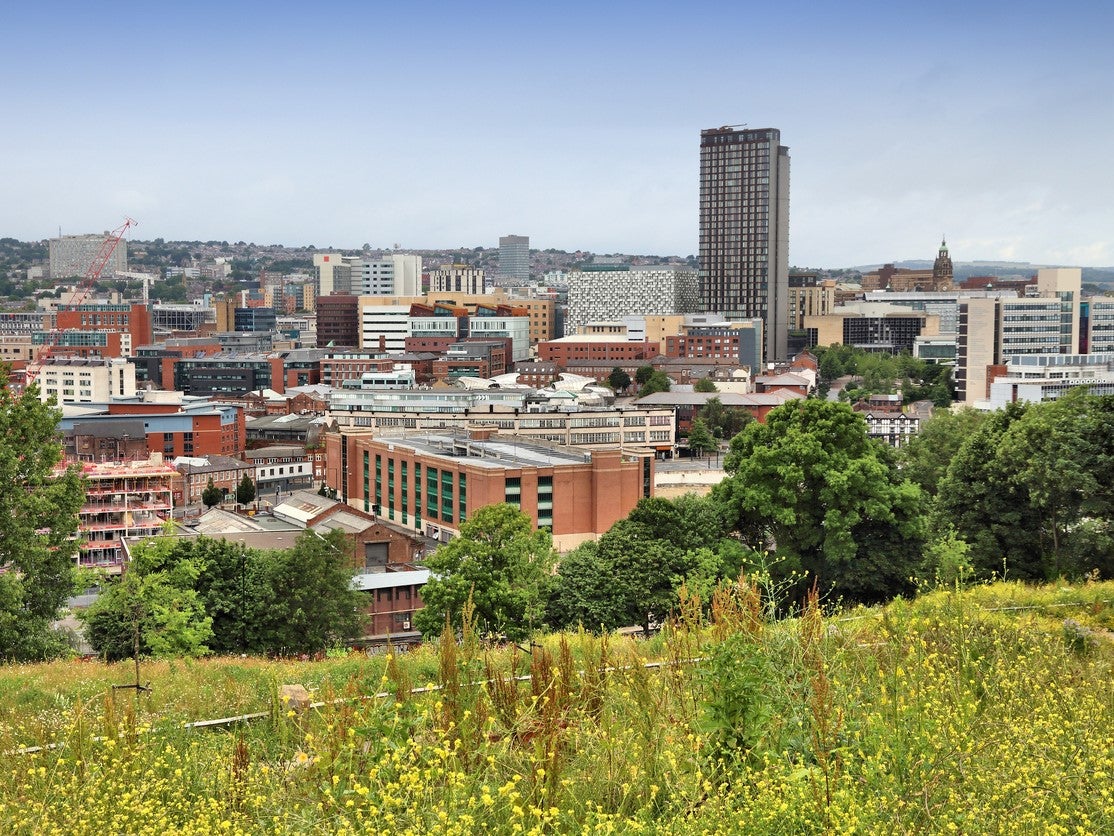Sheffield named as UK’s most sustainable city – while Wolverhampton comes bottom
Wide open spaces, millions of trees and high renewable energy use put former industrial powerhouse top of green table

It is a city that was once described by George Orwell as the “ugliest town in the old world”.
In Sheffield, he wrote in 1936, “in whichever direction you look you see the same landscape of monstrous chimneys pouring forth smoke”.
But today, things are somewhat different: the South Yorkshire city has just been named the greenest in the UK.
Researchers from the University of Southampton ranked the country’s biggest 25 urban centres for their sustainability – and this one-time industrial powerhouse came out top.
Its wide-open spaces (a third of the city famously sits within the Peak District), millions of trees and a comparatively high volume of renewable energy production all helped the Steel City top the table.
Edinburgh came in second, Cardiff third and Brighton and Hove was fourth. London was 11th. Glasgow, which is to host Cop26 conference from Sunday, was seventh. Wolverhampton came last.
Douglas Johnson, Sheffield City Council’s Green Party cabinet member for climate change, said: “It’s nice to be recognised but, as a city, we now need to go further and faster to reach net-zero by 2030.”
He added that hundreds of the city’s least energy-efficient homes were currently being reinsulated with government grants, while millions of pounds were being ploughed into building and upgrading walking and cycling routes to connect areas right across the city.
“We need to get away from the internal combustion engine,” said Mr Johnson.
The Green Cities Report ranked areas using a range of environmental data including pollution levels, renewable energy production, car use and green space.
Professor William Powrie, who led the study, said he hoped the list would “enable cities and people to reflect on their progress towards behaving sustainably”.
He added: “Extreme weather events of the past year and the focus on sustainability ahead of Cop26 have brought home the need for changes in the way we live if we are to mitigate the effects of the twin environmental catastrophes of climate change and loss of biodiversity.
“We have run out of time and the changes need to be made now… simple changes can make a big difference – walking, cycling or using public transport rather than going by car and using less and recycling more – but we all need to get involved.”
Join our commenting forum
Join thought-provoking conversations, follow other Independent readers and see their replies
Comments
Bookmark popover
Removed from bookmarks